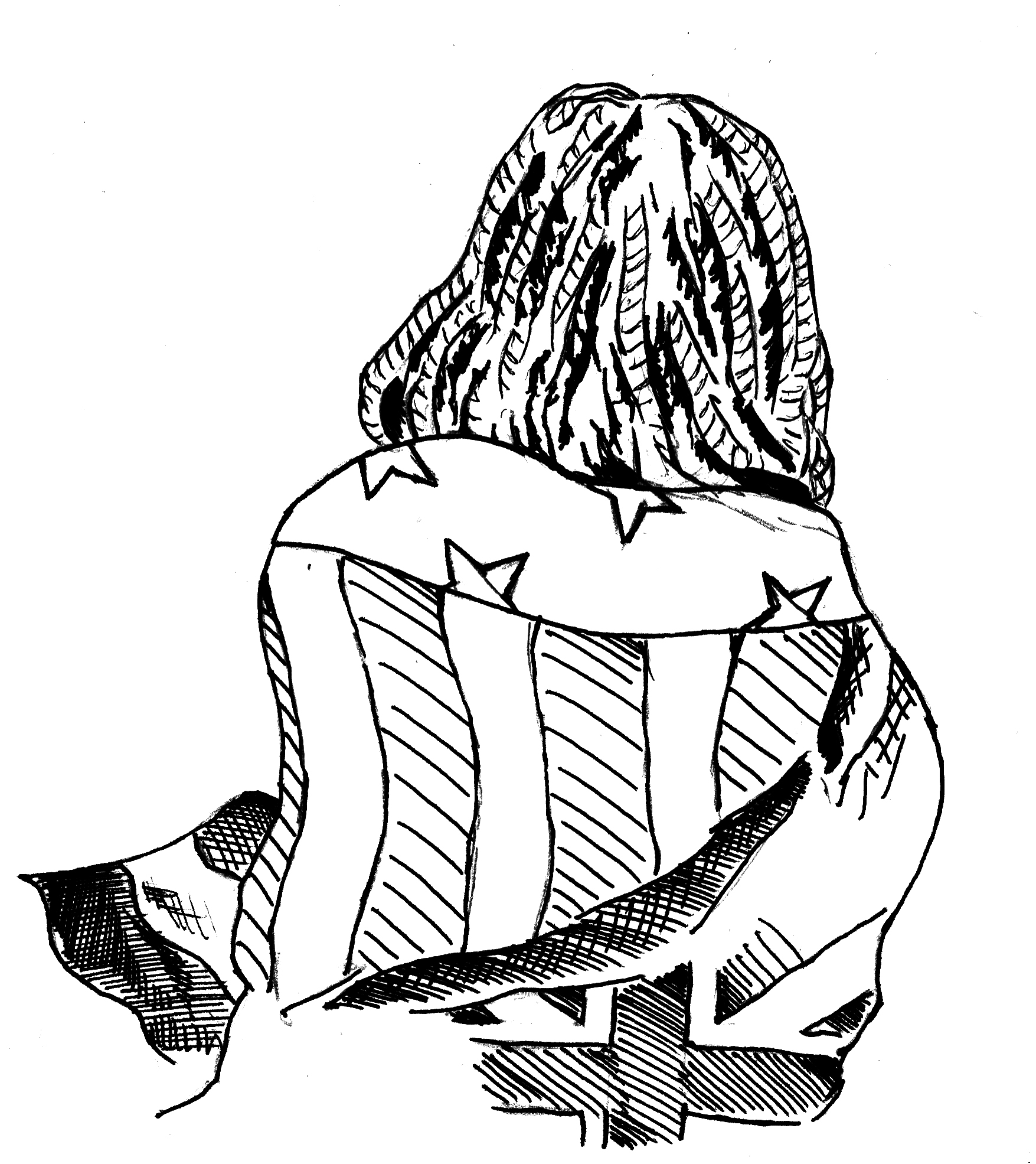I am an American, too: coming to terms with this country
November 16, 2018
I felt the least American in the spring of my senior year of high school. It was early 2016 and we talked about Trump at least once in every class I had. My school was very divided. At the time, I was upset about it. Now, though, I feel proud that I went to a school with such political and racial diversity, where we had meaningful and useful conversation, constantly defending our positions.
It was towards the end of senior spring that we were all pulled out of class to register to vote in one of the electronic classrooms. I told my teacher that I was not a citizen, only a permanent resident, so I could not register to vote. I felt stripped of my rights in that moment. One of my good friends, with whom I often had political conversations, was shocked that I wasn’t a citizen. In a way, I was too. Hadn’t I earned my citizenship? I’d lived here for the majority of my life—at that point, 10 years. I had grown up in the American education system and had been taught about American history. I hadn’t tapped into it yet, but there was some semblance of American pride in me. I wanted to participate in the democracy. I wanted to do my part and vote.
I asked my mother while I was home during the last two weeks of summer this question: do you feel more American, British or Sierra Leonean?
To my surprise, she was quick and sure with her immediate reply, “None. I’ve never felt like I had a country. Never.” She locked eyes with me and my heart broke for her. I realized, some part of her had always wanted me to ask her this question. Some part of her wanted me to recognize all the places her heart was tied to, the places she couldn’t choose and the places she chose so that I could have a better life. I realized, in all of my assumptions about the person my mother is, I had never bothered to ask her that question.
Instead, I’ve spent so much time agonizing over my own identity, blaming my mother for all of the places and people I feel torn between. When in reality, when I was a few weeks shy of my seventh birthday, my mum gave me the greatest gift: my country.
I’ve said before that Nayyirah Waheed’s poem, which says where you are is not who you are, speaks to me deeply. I have been thinking lately as well that where you were born is not who you are either.
I am American. I only realized this very recently. It has been coming on slowly, for months now. It does not say that on my birth certificate, and it does not say that on my passport. It certainly isn’t reflected in the languages and political opinions I heard about, the foods I ate and the places I traveled to and heard about growing up.
I woke up one day and found that I am the only member of my immediate family who is American, or at least feels that way. Just like the gift of life, my mother gave me the gift of my country.
When my mother told us we were moving to America, I don’t remember feeling anything but pure excitement. I knew my cousins and aunts lived there, and it was where we went sometimes for holidays and in the summers. Looking back now, I wonder why I felt no sense of mourning over leaving my home or my friends. While I always romanticize London now, I never did then.
I was born for the second time on that move to America. I learned about the Founding Fathers and the Declaration of Independence and John Peter Zenger, the champion of freedom of the press. I learned about FUBU, for us by us, and about daring to build a country that was run by its people and not in spite of them. I learned about a country made of immigrants. A country where coming from elsewhere is a defining characteristic of its citizens. Of the collective struggle to build a new life. The understanding that if it fails, you pick it up and try again. The ability, or at least possibility, to start in one place in your life and wind up somewhere very different through hard work and sheer will.
America is a nation of immigrants. And so, it is my country, and my history too. I haven’t always been able to come to such a place of clarity. I’ve always been suspended between worlds, across oceans. There’s something poetic about it. There’s something poetic about the struggle.
Sure, this country has its flaws like any other, but it is my country. I am just as English and Sierra Leonean as ever, but I am American too. The beauty of this country is that I can be all of these things at once.


Comments
Before submitting a comment, please review our comment policy. Some key points from the policy: